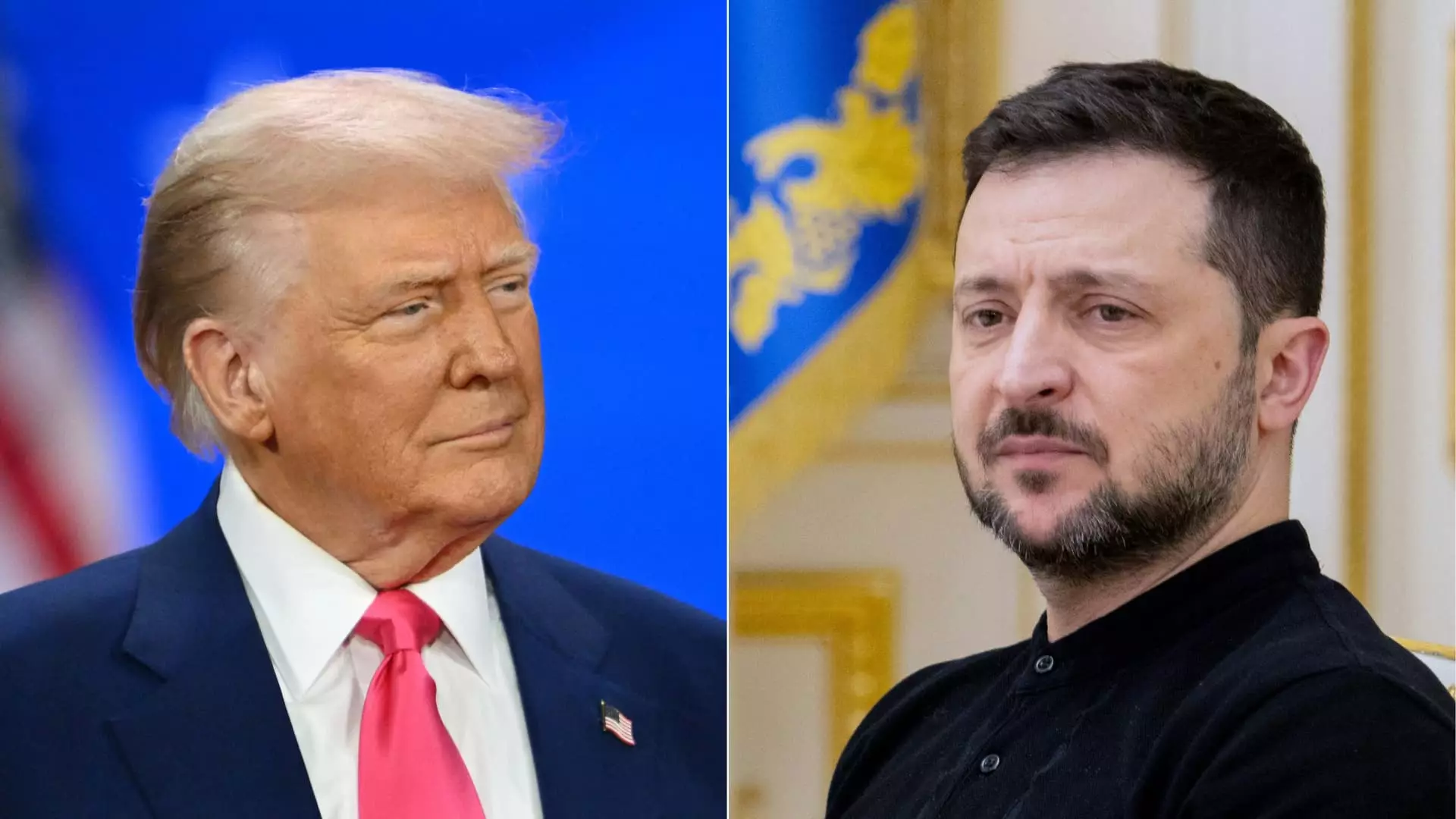In recent political discourse, signals have emerged that overly simplistic narratives are shaping the perception of the Ukraine crisis. Notably, some influential voices, including former President Donald Trump, have positioned Ukraine’s leadership as the primary obstacle to peace. Such rhetoric dangerously dismisses the complex realities on the ground, portraying Kyiv as a willing aggressor rather than a defiant nation fighting for sovereignty against an aggressive expansionist neighbor. To blame Kyiv, for the greatest part, is an oversimplification that ignores the broader geopolitical context and the fundamental rights of a nation defending itself from unprovoked invasion. It’s a strategy rooted in shifting focus away from Russian aggression and onto Ukraine’s political decisions—a move that undermines international solidarity and jeopardizes future security arrangements.
The Illusion of Easy Peace and the Cost of Capitulation
Convincing Kyiv to accept a settlement based on Russian terms is an illusion that dangerously underestimates the stakes involved. Expectations that Ukraine should cede critical territories or accept a wavering ceasefire in exchange for “peace” dismiss the reality that giving up strategic positions diminishes Ukraine’s capacity to resist future Russian advances. The notion that Ukraine can simply capitulate to Moscow’s demands neglects the vital importance of territorial integrity and sovereignty. Any such concession would not only embolden authoritarian powers but set a perilous precedent for conflict resolution—one where the aggressor’s terms are deemed non-negotiable, and the victim is coerced into surrender. Peace, if it is to be meaningful, must be rooted in mutual respect and acknowledgment of Ukraine’s right to self-determination, not dictated by Moscow’s geopolitical ambitions.
The Risks of Misguided Diplomacy and Strategic Recklessness
Encouraging Ukrainian capitulation under the guise of peace negotiations is a risky gambit that could have far-reaching consequences. The Western alliance’s role should be to bolster Ukraine’s defenses and uphold international law. Allowing Russia to impose terms such as NATO exclusion or control over eastern territories endangers the core principles that maintain global stability. These demands, which Moscow frames as “root causes,” threaten not only Ukraine’s sovereignty but also the democratic values of the broader European community. Crippling Ukraine’s capacity to resist Russian influence is a dangerous game that could unravel decades of international effort to contain authoritarian expansion. Democratic nations must recognize that supporting Ukraine’s resistance is an investment in a rules-based order—not a fleeting desire for quick peace.
The Impending Danger of Conceding to Moscow’s Demands
The so-called “root causes” cited by Russia—such as NATO expansion and perceived discrimination—are transparent attempts to justify militarized aggression. These claims, however, are unfounded pretexts for territorial conquest aimed at reasserting Russian dominance in its perceived sphere of influence. U.S. and European leaders must resist the temptation to accept these false premises and instead reaffirm Ukraine’s right to defend its territory. Any agreement that concedes strategic positions or undermines Ukraine’s sovereignty risks legitimizing Russian expansionism and emboldening future acts of aggression elsewhere. This is not a matter of choosing between peace and war per se; it is about choosing between a sustainable peace rooted in justice or a dangerous capitulation that guarantees instability.
The path forward requires unwavering support for Ukraine’s right to self-defense and a clear recognition of Russia’s imperial ambitions. Caving into Moscow’s demands under pressure from external actors or political expediency only guarantees more bloodshed and destabilization. The international community must push for negotiations that protect Ukrainian sovereignty, rather than accept hollow concessions that serve Russia’s expansionist aims. True peace can only result from confronting the realities of the conflict—resisting the seductive allure of quick fixes and instead choosing a future where democratic values and sovereignty are non-negotiable. Anything less risks turning Ukraine into another pawn in a dangerous chess game where the costs will be paid by millions of innocent lives.


Leave a Reply